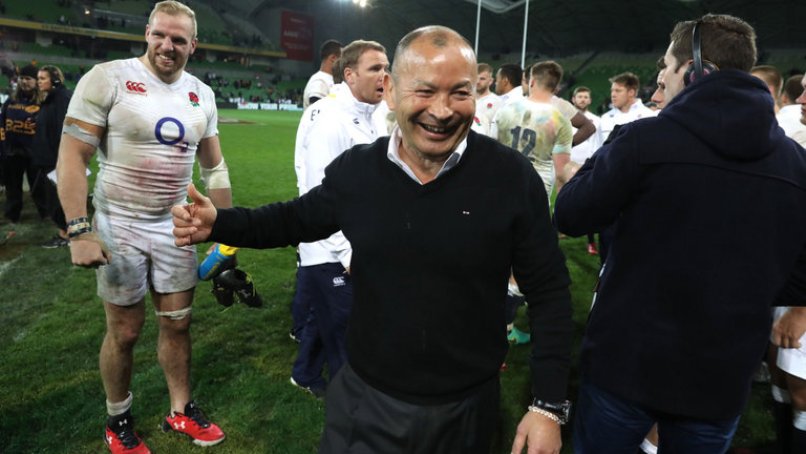
England head coach Eddie Jones draws strength from the fact he has always been considered an outsider, from his days growing up in Australia to his years of success in rugby.
The 57-year-old Australian — whose Japanese mother Nellie was interned in an American camp during World War II — says taking on the England job after Stuart Lancaster paid the price for a disastrous first round exit in the 2015 World Cup didn’t cost him any sleep.
With England, Jones has certainly given rivals sleepless nights, losing just one match in 23 — Ireland preventing a second successive Six Nations Grand Slam earlier this year.
His achievements in restoring lustre and pride to the England team earned him the world coach of the year award for 2017.
“I have always been an outsider,” Jones, who led Australia to the 2003 World Cup final, was technical director of the South African team that won four years later and coached Japan to a shock victory over South Africa in 2015, told Saturday’s edition of The Times.
“In Australia I am an outsider, in Japan I am an outsider. In South Africa I was an outsider.
“That has always been the case so I don’t find that daunting at all,
“It helps sometimes.”
Jones, the master of psychological banter in the lead-up to matches, says that his determination to re-establish the fighting spirit in the England team has been helped by several strong characters such as volatile hooker Dylan Hartley.
Jones, who suffered racial abuse when he was a youngster, installed Hartley as captain despite critics fearing the New Zealand born hooker’s poor disciplinary record would harm the team.
“It’s funny, as an Australian I am trying to bring out the best in the English; they are tough, they want to fight, to keep going. That is how we want to play,” said Jones.
“I think we have the right characters. Dylan has helped in that regard, Owen Farrell is naturally quite an aggressive person. Maro (Itoje) is a guy who doesn’t fear anything in the world.”
Jones, who forsook the job with South African Super Rugby franchise The Stormers when England came calling, says the least of his concerns is earning honorary Englishman status.
“I don’t think about that,” said Jones.
“I put my heart on my sleeve. I give it everything I have got. Every minute that I have, I give it to developing the team.
“I wanted to prove that an Australian could coach in South Africa. So the only reason that I took the England job is that I thought they had a potentially great team coming.” – Agence France-Presse


































